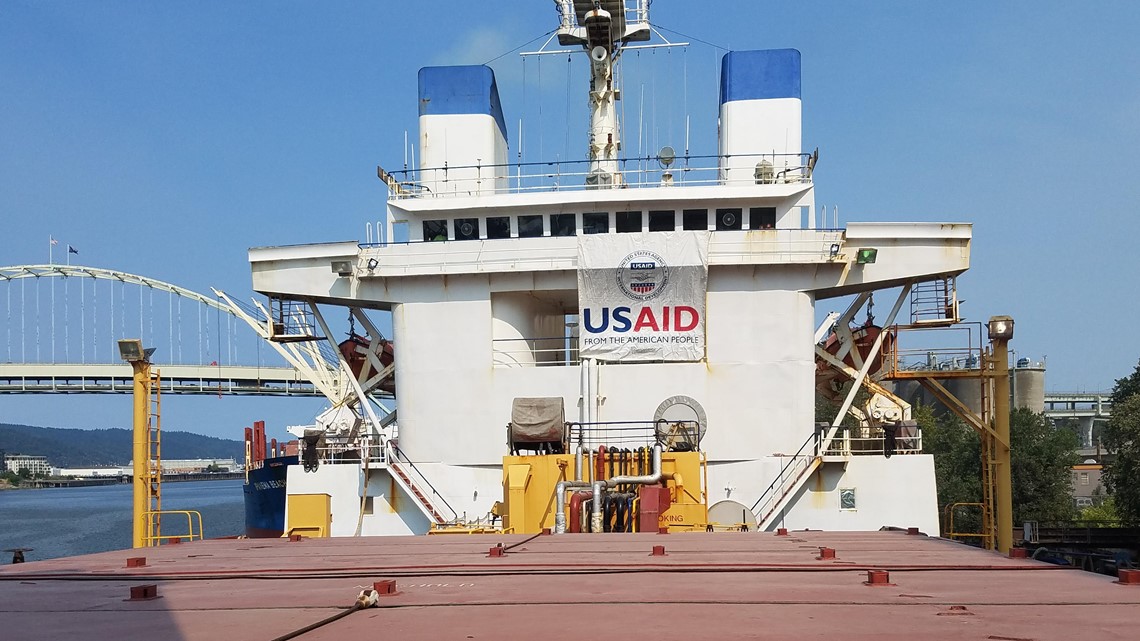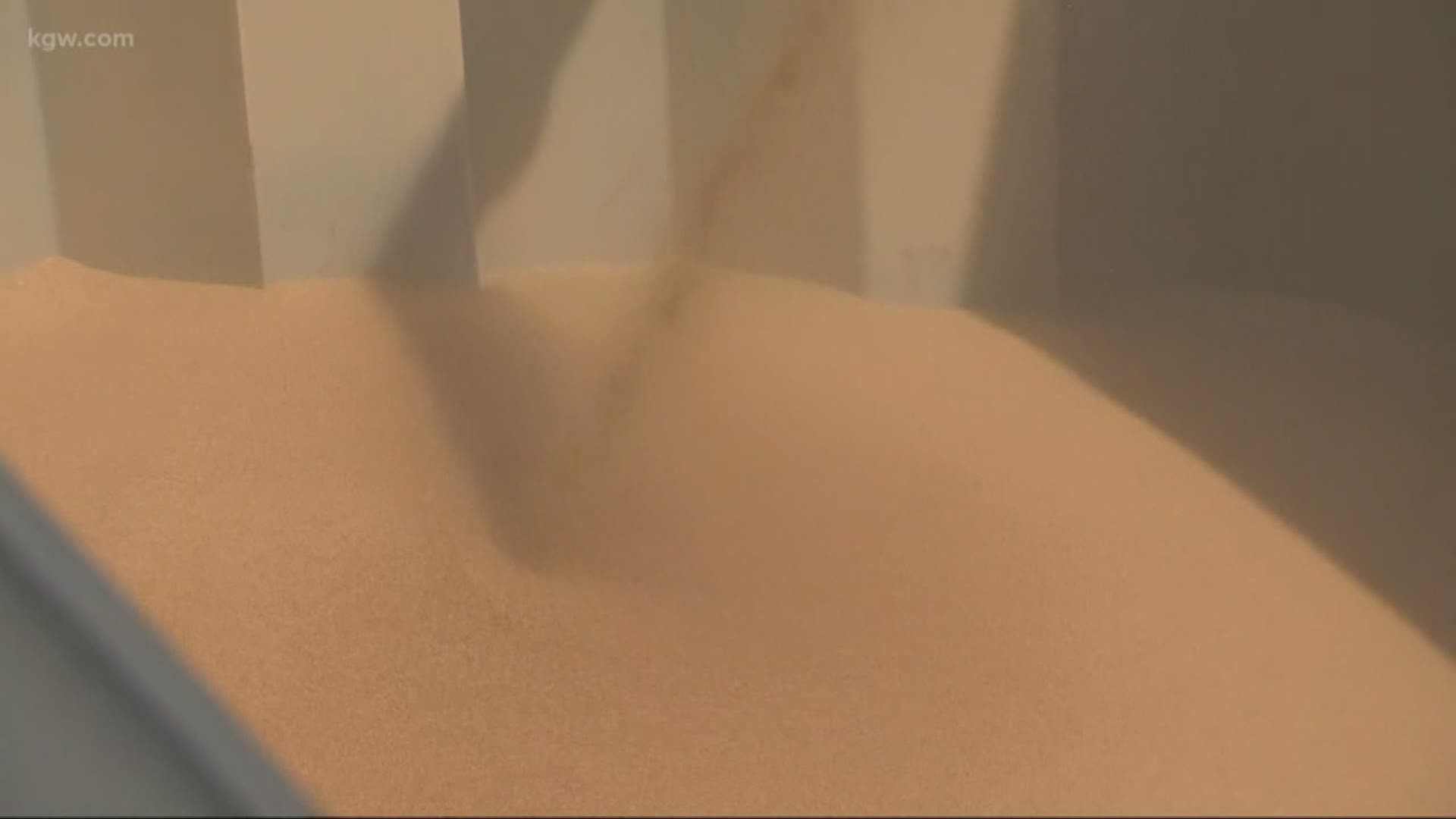PORTLAND, Ore. — From the farm fields of Oregon, Washington and Idaho, wheat is piling up in the hold of a cargo ship on the Willamette River.
The grain is a basic food source and this wheat is meant to save millions of lives in Yemen, in Western Asia.
The ship’s crew is all American. They carry one of seven shipments of wheat from Portland, paid for with $112 million by U.S. taxpayers.
“We make sure that the delivery goes through, we come back, and we get another one,” Captain Stephen Austin said.
That delivery is no easy task.


Yemen is in the middle of an awful civil war making headlines for the cruelty humans are showing each other.
Getty Images show the results of an air strike on Thursday by a Saudi led coalition.
One of the objects hit was a school bus with children on board.
The local government reports the airstrike killed 50 people and more than 70 are injured.
Yemen imports more than 90 percent of its food the supply is dwindling amid the violence.
The country director for the United Nations World Food Program, which will import the wheat, said its challenging.
“It’s very complex working in a war zone and you have to actually, once we get in the country, every truck that moves has to have a clearance from all the different parties to the conflict,” Anderson said. “So, there are huge logistical implications.”
American taxpayers are footing the bill for the wheat shipments, paying about $112 million.
Portland based Mercy Corps is also working in Yemen-- providing money to families to buy food -- which in turn helps keep the fragile economy going.
“Every day we're helping about 400-thousand people have something to eat and 30-thousand people have safe drinking water,” Graham Craft, the Vice President for Mercy Corps says.
He said people started the troubles in the country and people will need to bring about peace. In the meantime, starvation looms.
“Eight million people, so twice the population of Oregon, are on the brink of famine,” he said.
Which is why the shipments of Northwest wheat being so important.
Together they will create enough flour to make a local type of bread and feed as many as 7 million people for two months.

